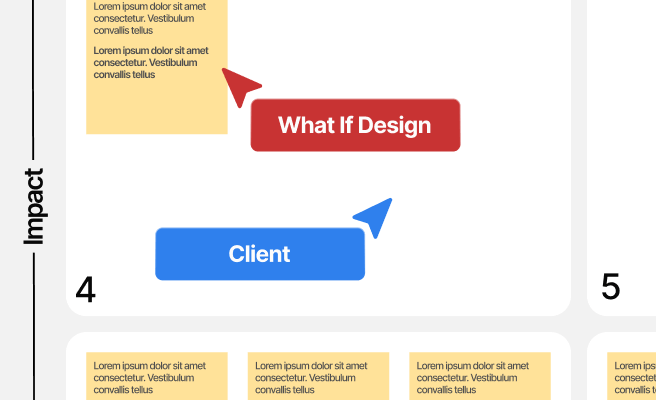Literature Review
<p>Literature review is a comprehensive summary of previous research on a topic. It surveys scholarly articles, books, and other sources relevant to a particular area of research. The purpose of a literature review is to provide an overview of what is known about a topic, identify gaps in knowledge, and help justify the need for further research. It's an essential component of research projects, theses, and dissertations as it demonstrates the researcher's familiarity with the field and helps to position their work in context.</p>
<p>Historically, literature reviews have been conducted in various fields to synthesize research findings. They can take different forms, such as systematic reviews, scoping reviews, or narrative reviews, each with its own methodology and focus.</p>
<h2 id="1">Importance of Literature Review in Research</h2>
<p>Conducting a literature review is crucial for several reasons:</p>
<ul>
<li><strong>Foundation of Knowledge:</strong> It helps researchers understand the current state of knowledge in their field and identify theoretical and methodological approaches.</li>
<li><strong>Identify Gaps:</strong> By highlighting gaps in existing research, literature reviews guide researchers toward unexplored areas that require further investigation.</li>
<li><strong>Avoid Duplication:</strong> They prevent researchers from duplicating studies that have already been conducted, saving time and resources.</li>
<li><strong>Contextualize Research:</strong> Literature reviews provide a context for the researcher's work, showing how it fits within the broader academic conversation.</li>
</ul>
<h2 id="2">Components of a Literature Review</h2>
<p>A well-structured literature review includes the following components:</p>
<ul>
<li><strong>Introduction:</strong> Introduces the topic, provides the context, and explains the purpose of the review.</li>
<li><strong>Body:</strong> Organizes the reviewed literature into themes, trends, or chronological order, summarizing and synthesizing findings.</li>
<li><strong>Conclusion:</strong> Summarizes the key findings, discusses their implications, and suggests areas for future research.</li>
</ul>
<h3 id="3">Types of Literature Reviews</h3>
<p>There are several types of literature reviews, each serving different purposes:</p>
<ul>
<li><strong>Systematic Review:</strong> Uses a rigorous and structured approach to identify, evaluate, and synthesize all available research on a specific question. <a href="https://www.cochranelibrary.com/" style="color:#2896FF; text-decoration: underline;">Cochrane Reviews</a> are prominent examples.</li>
<li><strong>Narrative Review:</strong> Provides a comprehensive overview of the topic, focusing on the development and trends over time.</li>
<li><strong>Scoping Review:</strong> Maps the existing literature on a topic to identify key concepts, gaps, and types of evidence available.</li>
</ul>
<h3 id="4">Challenges in Conducting a Literature Review</h3>
<p>Conducting a literature review can present several challenges:</p>
<ul>
<li><strong>Scope Definition:</strong> Defining the scope of the review can be difficult, as researchers must balance comprehensiveness with manageability.</li>
<li><strong>Data Overload:</strong> Managing and synthesizing large volumes of information can be overwhelming.</li>
<li><strong>Bias Management:</strong> Researchers must be careful to identify and minimize biases in their selection and interpretation of sources.</li>
</ul>
<h2 id="5">Practical Steps for Conducting a Literature Review</h2>
<p>Here are some practical steps to follow when conducting a literature review:</p>
<ul>
<li><strong>Define Your Research Question:</strong> Clearly articulate the research question or objective of the review.</li>
<li><strong>Search for Relevant Literature:</strong> Use databases such as <a href="https://scholar.google.com/" style="color:#2896FF; text-decoration: underline;">Google Scholar</a>, <a href="https://www.jstor.org/" style="color:#2896FF; text-decoration: underline;">JSTOR</a>, and <a href="https://pubmed.ncbi.nlm.nih.gov/" style="color:#2896FF; text-decoration: underline;">PubMed</a> to find relevant sources.</li>
<li><strong>Evaluate and Select Sources:</strong> Critically evaluate the quality and relevance of the sources you find.</li>
<li><strong>Organize the Literature:</strong> Categorize the literature into themes or trends to help with synthesis and analysis.</li>
<li><strong>Synthesize Findings:</strong> Summarize the main findings and identify patterns, discrepancies, and gaps.</li>
<li><strong>Write the Review:</strong> Write the literature review, ensuring it is well-organized and clearly presents the synthesized findings.</li>
</ul>
<h3 id="6">Examples and Case Studies</h3>
<p>In the climate tech industry, literature reviews are often used to synthesize research on emerging technologies. For instance, a literature review on carbon capture technologies might summarize recent advancements, identify challenges, and suggest areas for future research. This helps companies stay informed about technological trends and make strategic decisions.</p>
<h3 id="7">Tools for Literature Reviews</h3>
<p>Several tools and software can assist in conducting literature reviews:</p>
<ul>
<li><a href="https://www.zotero.org/" style="color:#2896FF; text-decoration: underline;">Zotero</a>: A tool for managing and sharing research sources.</li>
<li><a href="https://www.mendeley.com/" style="color:#2896FF; text-decoration: underline;">Mendeley</a>: Reference manager and academic social network.</li>
<li><a href="https://www.endnote.com/" style="color:#2896FF; text-decoration: underline;">EndNote</a>: A reference management software for organizing references and creating bibliographies.</li>
</ul>
<h2 id="8">Conclusion</h2>
<p>Literature reviews are vital for advancing knowledge in any academic field. They provide a comprehensive overview of existing research, highlight gaps, and set the stage for new investigations. Whether you are a researcher, student, or professional in the climate tech sector, mastering the art of literature review can significantly enhance your research and decision-making processes.</p> <p>We’re using the power of design to increase the adoption of climate technologies and innovation. View our work in climate to know more on how we can support your vision. <a href="https://www.whatifdesign.co/climate" style="color:#2896FF; text-decoration:underline;">View our climate projects</a>.</p> <p>Increase user engagement that converts your demos into sales. Optimise your UX strategies with our audits.
<p>Fill out the <a href="https://tally.so/r/n97pxQ" style="color:#2896FF; text-decoration:underline;">UX Audit form</a> to get started. Ready to discuss your needs? <a href="https://cal.com/akhilak/what-if-design?duration=25" style="color:#2896FF; text-decoration:underline;">Book a consultation call</a> with us today.</p></p>

Let's scale your impact with great design.
Free consultation, no sales pitch
Thank you! Your submission has been received!
Oops! Something went wrong while submitting the form.
Let’s talk
Nothing great is built alone.
Let’s connect about your vision, our work and how we can collaborate.
Get in touch

